You can probably tell I’m quite excited about this,” says Bob Carnell. The Kerry Foods GB boss is not a man given to hyperbole – throughout our interview at his offices in Egham, his answers are calm, measured and deliberate – but his excitement is indeed palpable.
“This is the most significant piece of branded NPD I have worked on in my career,” he says. “Without doubt, it’s a game changer.”
The reason for Carnell’s excitement? Yoghurt. On a stick. Not the frozen kind, of course, but actual chilled yoghurt that can be put into kids’ lunchboxes in the morning and consumed at lunchtime without the need for a spoon or concerns about mess.
This article is part of The Grocer’s Dairymen series.
The product, launched under the name Yollies just a few weeks ago, is the result of five years of R&D work for Kerry – and it will be a key platform for the company’s growing dairy ambitions over the coming years.
Yollies epitomises Kerry’s NPD philosophy, says Carnell. “Our approach is very much technology-driven. What we want to do is create a point of difference through technology.”
But its significance goes beyond that. Yollies is a sister brand to Kerry’s Cheestrings, and the launch marks the first step in the company’s plan to transform Cheestrings from a cheese snacking into a broader dairy brand.
The idea jars at first – as Carnell himself admits, a brand that references both ‘cheese’ and ‘strings’ in its name may not seem ideally suited for category expansion, but he is convinced he can make it work.
This means rather than selling Yollies explicitly under the Cheestrings name (the name is mentioned, but only discreetly on the side of packs), Kerry is using a similar colour scheme and design cues for both product lines to convey they are part of the same “brand family.” The first Yollies TV commercial – due to air during the first quarter of 2015 – will use the same visual language and style as the current Cheestrings campaign.
More subtly still, Carnell points out the company has recently started adding the words ‘Kerry Dairy’ to packs of Cheestrings, with the same wording also appearing on Yollies – yet another sign of the company’s intention to create a broader presence for itself within dairy.
Indeed, Carnell goes so far as to say that Kerry plans to double its GB branded dairy business to £120m over the next five years – driven by the newly expanded Cheestrings/Yollies but also further growth from Low Low, Kerry’s reduced-fat cheese brand, which Carnell says has great potential in the adult snacking sector.
Once Yollies has been fully launched across the trade, Carnell says Kerry will be looking to push the Cheestrings brand into further dairy categories. Given the brand’s target demographic, does that mean a move into milkshakes or yoghurt drinks could be on the cards? Carnell laughs. He won’t be drawn on his plans but says to expect the next Cheestrings brand expansion in late 2015 or early 2016.
The wider context
Of course, Kerry Foods does far more than just dairy – the company is a significant player in the own-label ready meals sector, for instance, and also owns the Richmond and Wall’s sausage brands – but dairy is a core part of its DNA. “Kerry’s heritage is in dairy,” says Carnell. “When it was set up in 1972, it was set up as a dairy farmer co-op. Those farmers are still strongly linked to Kerry, and many of them remain our shareholders.”
Today, Kerry’s dairy business in Great Britain (the Republic and Northern Ireland are both covered by Kerry’s Irish operations) is focused to a large extent on own-label spreads – Kerry supplies all the major mults as well as discounters – followed by its branded dairy portfolio and, lastly, cheese slices, which the company supplies into the mults’ own-label ranges and the quick-service restaurant sector. All of McDonald’s cheese slices in Britain, for example, are made by Kerry.
“Our vision is to become the leading innovator in the dairy category. We think we can make a real difference”
A significant footprint in dairy, then, and one that Carnell is keen to grow further. Aside from his plans to double the size of Kerry’s GB branded dairy portfolio, he is increasingly looking for export opportunities. “International is becoming more important for us, and dairy is a significant platform for that,” he says. Kerry already sells its brands in France and Germany and has some spreads business in southern Europe, and Carnell says it is exploring opportunities for BSM in other European markets.
Back at home in the UK, premiumisation in spreads is a priority (see Focus on Butters & Spreads p73), and driving NPD. With Kerry having just invested in a new production process to reduce salt and satfat content in spreads and spending a “seven-figure sum” to expand its Coleraine facility for the production of Yollies, it’s back to that concept of “technology-driven innovation.”
“Our vision is to become the leading innovator in the dairy category,” says Carnell. “The feedback we hear all the time is that there isn’t enough innovation happening in dairy – we think we can make a real difference here.”
This focus on technology is also the reason why – perhaps surprisingly, given its dairy roots and its existing presence in the BSM category – Kerry isn’t interested in becoming a butter supplier in Britain. Too commoditised, says Carnell. “What we’re interested in is adding value through our technological expertise and consumer insight.”
It also means Carnell feels Kerry is relatively insulated from the growing drive towards British provenance in the dairy sector. While fellow Irish-owned players like Adams Foods have made it a strategic priority to secure British dairy supplies so as to meet the mults’ growing demand for UK-made fare, especially in categories like Cheddar, Kerry has a supply base of 3,500 farmers in the South West of Ireland, and Carnell says there are no plans to start up a farmer supply base in the UK.
“I get the importance of British provenance and I get it’s important in certain categories, but that requirement is just not there for us. Provenance is not a key factor in the categories we operate in.”
Carnell is far more interested in talking about the changing UK retail landscape and the rise of the multichannel shopper. “The structural implications for the market are huge,” he says.
In response, Kerry has invested in a dedicated online team and is working on making its manufacturing process more flexible – by offering a range of pack sizes suitable for online and convenience, for example. This includes a new 24-pack of Cheestrings, developed specifically to suit the larger basket sizes of online grocery shopping.
“There have been more changes in the last nine months than in the last nine years,” says Carnell, reflecting on the changing face of UK retail. “And if there’s one priority for us, it’s that we really are absolutely determined to be at the forefront of that.”
This article is part of The Grocer’s Dairymen series.







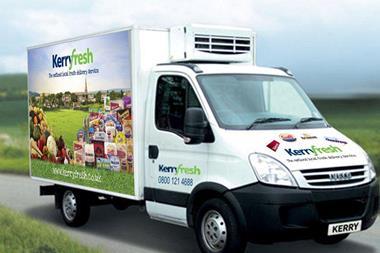



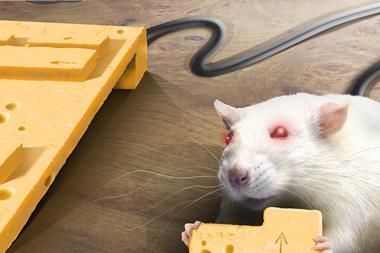



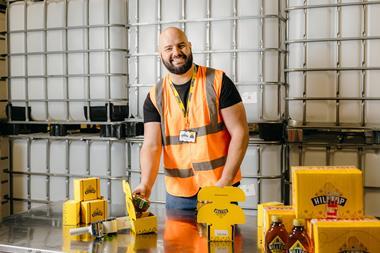
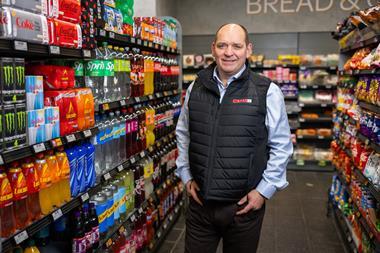
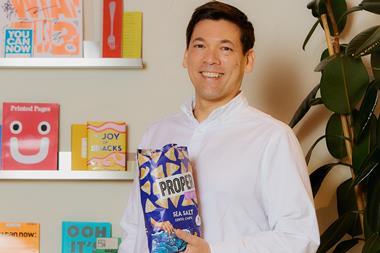
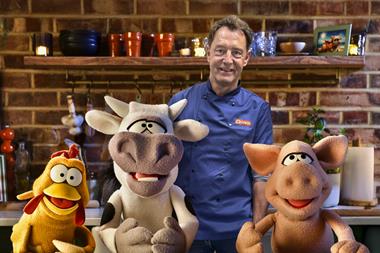
No comments yet